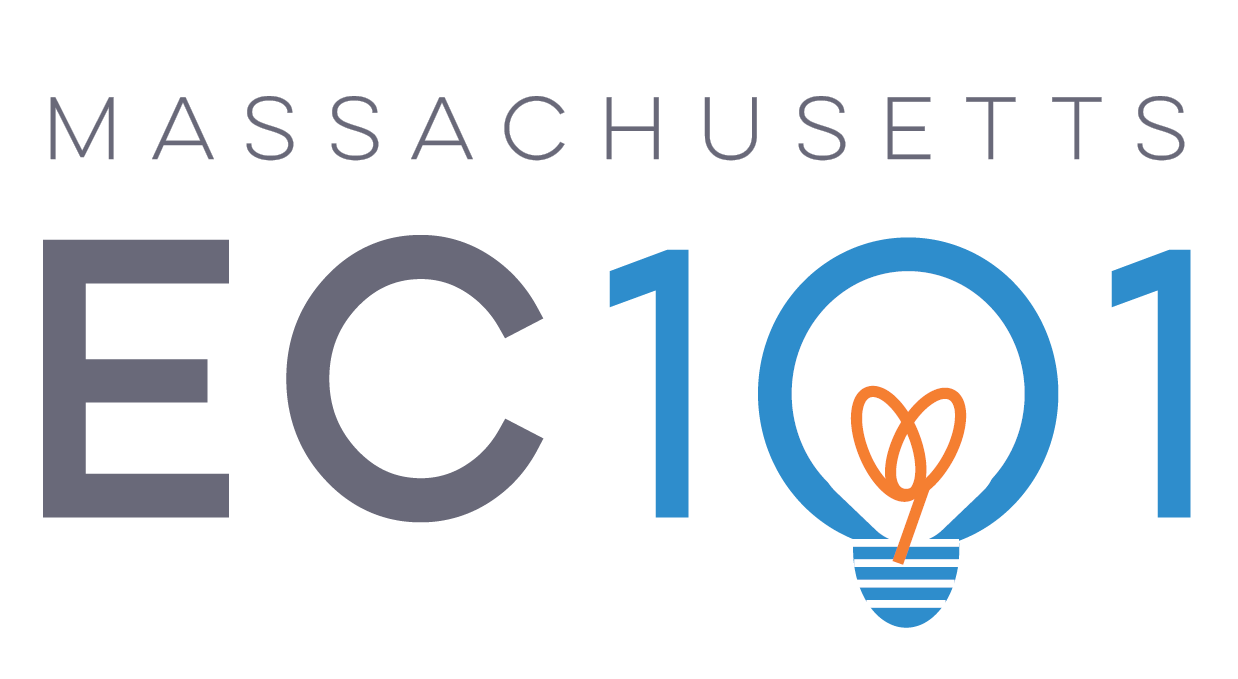Early Education & Care

education & care
Services focused on the social, emotional, and cognitive growth of young children taking place in a setting without their parent or caregiver present.
IN THIS SECTION
education & care
Ages
Birth - 5 years
Usage
Geography
Statewide
Professionals
Early Childhood Educators and Staff
Settings
Family Child Care Provider’s Home
Oversight, Guidance and Regulation
Department of Early Education & Care
Family Child Care
Family Child Care (FCC) providers are child care programs where a caregiver/educator cares for children within their own home. Formal FCC programs are licensed by the Department of Early Education & Care. Some FCC programs take state subsidies.
Subsidies
are financial assistance for eligible families (with an income level at or below 50% of the state median income) to help pay for child care tuition. As of 2022, there were 4,782 licensed Family Child Care programs in Massachusetts. At the end of 2023, the Massachusetts Budget and Policy Center put together
this informative primer on family child care programs.
Center-based Care
Center-based child care is care that takes place outside of the child's or caregiver's home. These child care providers are programs and educators licensed by the Department of Early Education & Care. Some center-based programs take state subsidies.
Subsidies are financial assistance for eligible families (with an income level at or below 50% of the state median income) to help pay for child care tuition. As of 2022, there were 2,789 licensed center-based programs in Massachusetts.
education & care
Ages
Birth - 5 years
Usage
Geography
Statewide
Professionals
Early Childhood Educators and Staff
Settings
Child Care Centers, Community Organizations
Oversight, Guidance and Regulation
Department of Early Education & Care
education & care
EXAMPLES
Public School District Preschool
Ages
3 years - 5 years
Usage
Geography
Statewide
Professionals
Early Childhood Educators and Staff
Settings
K-12 Public Schools
Oversight, Guidance and Regulation
Department of Early Education & Care
Public Pre-Kindergarten
In some cases, public school districts have preschool classrooms embedded within elementary school buildings or housed in standalone early childhood centers. Other examples of public preschool are federally funded programs, Head Start and Early Head Start.
Equity Considerations
Families have many decisions to make for their child in the first five years of life, and where to send their child for early education and care is one major decision. However, many parents don’t have a choice, due to a lack of affordability and access to child care programs across the Commonwealth. Massachusetts consistently ranks as one of the least affordable states for child care, and most families spend 20-40% of their annual income on these programs. Access is another issue due to a lack of sufficient seats for children in need of care, particularly in child care deserts (areas with limited access to child care services). The Department of Early Education and Care has a searchable directory of licensed and license-exempt child care programs. Additionally, they maintain an interactive dashboard of key performance indicators, including family access, program stability, and workforce support.
Informal Care
Informal care is care that typically does not engage with the state except occasionally through subsidy provision. This type of care often happens through family members (such as siblings or grandparents), neighbors, friends, babysitters, nannies, or au pairs to support parents with child care needs. Family, Friend, and Neighbor care is often unpaid and can be full- or part-time care. Babysitters, nannies, and au pairs are typically paid on an hourly or daily basis and can be full- or part-time positions.
education & care
Ages
Birth - 5 years
Usage
Geography
Statewide
Professionals
Family Members, Friends, Neighbors, Older Siblings, Nannies, Au Pairs, Babysitters, Grandparents
Settings
Family’s Home or Others' Home
Head Start & Early Head Start
Head Start is a free early childhood program funded by the federal government to support low-income families and young children. Head Start offers Center-Based Child Care, Family Child Care, and home visiting options on a part-day, part-year, or full-time basis. Head Start and Early Head Start offer comprehensive services that support children and families with a wide range of services to address their holistic needs. Early Head Start also offers services to pregnant women. Some Early Head Start programs only provide home visiting services and do not have center-based care.
Ages
Early Head Start: Pre-Natal - 3 years
Head Start: 3 - 5 years
Usage
Geography
Statewide (167 centers in MA)
Professionals
Early Childhood Educators and Staff, Community Resource Staff, Healthcare Professionals, Continuing Education Professionals
Settings
Head Start Centers
Oversight, Guidance and Regulation
Department of Early Education & Care
United States Department of Health and Human Services
PROGRAM Snapshot
Early Childhood Education Workforce Overview
The early childhood education workforce refers to professionals who work directly with young children, including infants, toddlers, and school-age children, as teachers and caregivers. These professionals work with children during the period of the most rapid developmental growth in a child’s life.





